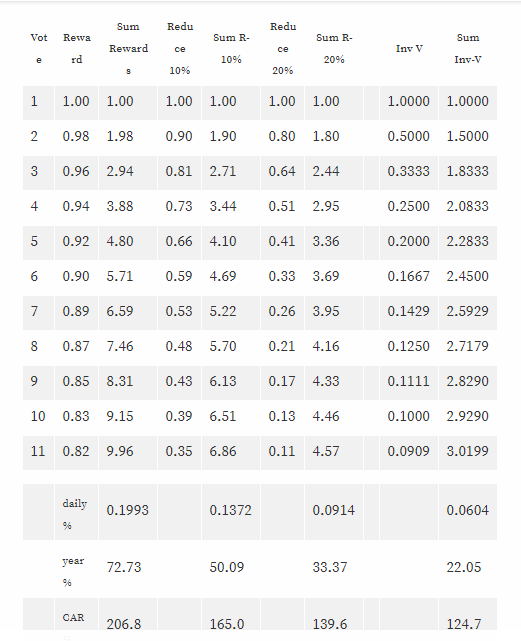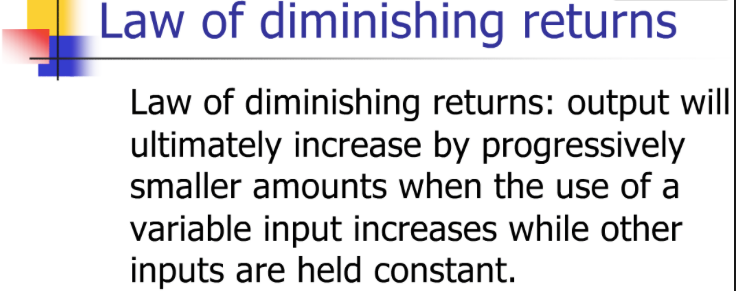What is the Best Available Solution for Excessive Self Voting, and Upvote Rings?
Before I get into this post, a little bit about the dynamic of @newsteem. Basically, right now, the way it works is @inquiringtimes points me in a direction, and says go get it. I do some research, word vomit what I find out about it and let him edit it down to a nice refined finished piece. It has worked well so far, and I don't see much reason to change.
Except maybe sometimes I go off the beaten path a little bit when told "go get it".
This article was supposed to be a pretty simple "Reader's Digest" Version of a post from @rycharde which recommends a course of action to partially fix the reward pool.
Sure, I could have written that article. But I wanted to collect some other thoughts.

So I went out to Ask Steem and plugged in a search for Self Upvote. You can see the results for yourself by clicking the link.
I spent some time roaming through the results, and found various opinions on Self Upvoting from several prominent Steemizens.
Let's start with the two part post from Rycharde. The first post came out on 9 July 2017. In his own terms, that post is a "summary" of the problem as he sees it, and a potential way to make fixes.
I wanted to highlight this portion describing the Prisoner's Dilemma:
The so-called Prisoner's Dilemma is a very real phenomenon in social behaviour. Put in terms of social interactions, it states that the equilibrium point is the point at which everyone acts in their own self-interest. But such an equilibrium point is not the optimal point. However, for any one individual to change behaviour unilaterally from one of self-interest to one of optimal social interest is not in the individual's own self-interest. That is the crux of the dilemma.
Ideas for future rule changes
So there's a lot of words here. I think what it boils down to is that people are only altruistic for so long before their own self preservation or reward instinct kicks in and they begin to act solely in their own best interest, which is not in the best interest of the rest of society.
Of note was Item 13 from that post:
Self-voting and voting cliques cannot be eliminated. Indeed, for curators self-voting can be important in triggering votes from their followers. It is also a waste of social power to spend considerable time on negative interactions at the cost of more positive ones. Therefore, there can be a rule that voting for the same user, whether oneself or another, will decrease the power of each subsequent vote, within a limited period. For example, take the last 10 votes of a user and, if a new vote is given to a user already voted then that new vote may be worth 90% or 80% of what it would normally be. This can be scaled down to the point that further votes have even less value. I repeat, this will not stop such behaviour but will decrease the reward pool that it generates and therefore mitigates some of the effects on the whole system.
There was quite a bit in the comments section on this point.
@personz says:
"it's not just about abuse, far from it. It's about encouraging the majority to vote outwards and to a variety of other posters. So for me it's a question of balancing the incentives around a vision of what kind of place we want to see and how to reward it."
Perhaps because of the support for this new voting algorithm in the comments, @rycharde comes out with a follow up, focusing on that point more specificly.
...recent game theory is quite clear on three important matters: that absolute self-interest from all players does not achieve the best outcome for everybody, that cooperation can lead to higher growth than self-interest; secondly, that there is no way to guarantee that everybody follows a path of cooperation, that there is no way to eradicate behaviour that may appear anti-social; and lastly, that the best that can be done to achieve an optimal ecosystem is to limit behaviour that is considered sub-optimal. This must be achieved through the rules of the game and by changing those rules if it is deemed necessary. - Proposal for New Rules Regarding Self Voting
Here's the table of Rycharde's proposal on decreasing the reward of an upvote for each subsequent vote one gives themself, or another user in a given period.
In his proposal, @Rycharde suggests that after that first vote, if you come back and vote for the same user a second time within a 24 hour period, your upvote value decrease by 10-20%.

@Rycharde goes on to describe how even at the 20% decrease, the Compounded Annual Rate of Return is still 125%. I would like my stocks to do so well!

Other Opinions
This is a conversation which has been going on as long as Steem has been around. So let's take a look at a few quotes from other members of the platform, in chronological order.
It is important to note that my research entailed the results of my AskSteem search only. Some of these users may have changed opinions since the writing of the piece quoted.

First, let's go all the way back to November and visit with @klye. In his post from 11/17 Should Steem Users be able to Upvote Their own Content He notes that he does upvote his own content some of the time. He brings it down to a summation of..
...As a community we get to decide if allowing self upvoting will be frowned upon in the future! The wonderful thing about STEEM is that it's future is indeed dictated by its users and witnesses which run the network.
Basically stating that as a community we have the tools (Flags) to decide if we are going to discipline people for their self upvote, or reward them with our own upvote.
The Counter to that Argument may be that our tools are imperfect, and at times insufficient to the task. A minnow literally cannot discipline a Whale in a meaningful way on their own.
Skipping ahead to June of this year, I found a post by @neoxian. I am not going to link that particular post here, as it was targeted at a particular user, and the issue was resolved, however, I did find this quote to be useful to our discussion.
Welcome to HF 19 I guess, this is the new normal.
Look, I know I'm not a saint in this regard. I upvote myself plenty too, but I'm very aware when I'm doing it, and usually it's like...30 cents... And if I do go higher, it's because I feel like what I'm saying is pretty important and I want visibility.
This comment specifically refers to upvoting our own comments. Since upvoting your own comments is part of the issue I thought this was worthy of inclusion. I will say, I have upvoted my own comments for the sake of visibility. I believe, in certain posts, that my content is worthy of the Original Poster's attention, so I will give an upvote worth enough to put my comment toward the top of the default trending results. In this case, I agree with the point of "I feel like what I am saying is pretty important."
The point of this is to say that upvoting your own comments, as with your own posts, is a mixed bag. It could certainly be frowned upon, but could it also be a valuable tool? Again, we can only use the tools we are given.

On July 3rd, @stellabelle added her voice to the Self Upvote Stampede
It's (Steem) coming from the word, esteem. Let's review that word:
respect and admiration, typically for a person. "he was held in high esteem by colleagues" synonyms: respect, admiration, acclaim, approbation, appreciation, favor, recognition, honor, reverence;
Notice something interesting about this definition: it relates to how one person feels about another person. It's not talking about how one feels about one's self. THIS IS CRUCIAL FOR UNDERSTANDING HOW STEEMIT WORKS.
I think we can see here which side of the argument Stellabelle comes down on. Let's pull out the key thought here: "it relates to how one person feels about another person. It's not talking about how one feels about one's self."
To me this is saying that Steem was built on the idea of having esteem for each other, and that the reward pool was meant for us to show that esteem in the way of upvotes.
Of course the counter argument to this would be that if the devs did not want us to upvote ourselves, why even make it an option? There was a point in time when someone was writing the code and they said "Do we disable the upvote button on users own posts?" A discussion would have been had, and a decision made to leave it enabled.
Moving on to July 15th, @inertia puts together a post simply titled Self Voting. This post was a response to another, and has a lot of quoted text, so pulling a direct quote from @inertia was a bit difficult. But A very impactful statement made at the top of the post:
Is self-voting bad? No. Is it good? No. It's completely neutral.
One of the points @inertia makes is that out Steem Power is our "Stake", and what we do with our Stake is entirely up to us.
I want to explore that a little bit. Your Stake, your share of the business. If we look at it that way, then wouldn't your vote be your "dividend"? And no one is going to a shareholder of Google and telling them they have to split out their dividends from owning shares in Google. In fact, people would probably be shocked, and possibly think you were mental if you went around sharing your profits.

Of course Steem is not a publicly traded company, and our upvote is not a dividend. But I think it is an analogy worth considering.
After all. When we talk about Voting abuse, aren't we talking specifically about those who are using the Steem Power they have EARNED on the platform? Should there be a different set of rules for those who got their Steem Power through investing?
If I invested $5000 USD into Steem, I did so because I saw the promise of the platform and I expected to earn a return off of that investment. In an ideal world, I am going to see that return through the upvotes of my peers who enjoy the content I put out. But in truth, the only upvote I can 100% count on is my own. Do I not owe it to myself to protect my investment by voting for myself?
And what about people who Lease Steempower? Where do they fall? I am currently winding down a 5 week lease of 1500 SP from Minnowbooster. That lease cost me 50 Steem. Should I not do everything in my power to ensure that my return on that 50 Steem is at least break even? Can I definitively earn 50 Steem value in SP through Curation alone? The short answer to this is no. However, In my experience, by upvoting myself at 100% VP twice a day I give myself a good theoretical break even scenario, and then I spread the rest of my vote as much as possible. I haven't done the math, but I think I am going to come up short of breaking even on this investment and will probably opt not to renew my leased power.
But should I be frowned on for upvoting myself in an attempt to recoup my investment? Feel free to discuss that in the comments as well.
@inquiringtimes interjects that when you invest into this platform you still have the steempower, so excessive selfvoting in this case would mean you are trying to excessivly benefit from your investment. The point of voting power is to allow an easy way of sharing rewards with out losing anything, not a way to recover your investment and keep double the rewards.
As I wrap up, I do think @rycharde is onto something with his idea of diminishing returns. After all, if I stick to my two upvotes for myself a day policy, then my $2.00 is still $1.80 even at a 20% drop. But the more I vote for myself, the lower the returns are on this behavior.

So what do you think? Is Rycharde on the right track? Do you think his solution would help or hurt Steem in the long run? What suggestions do you have that might add to, or be better than the diminishing returns model? Bring your ideas and suggestions. Let's chat in the comments! I look forward to a lively discussion on this one!
Links From this Article:
- Ask Steem
- Ideas for future rule changes - @rycharde
- Proposal for New Rules Regarding Self Voting - @rycharde
- Should Steem Users be able to Upvote Their own Content - @klye
- Self Upvote Stampede - @stellabelle
- Self Voting - @inertia
Join Us in the SteemitBC Discord Server
